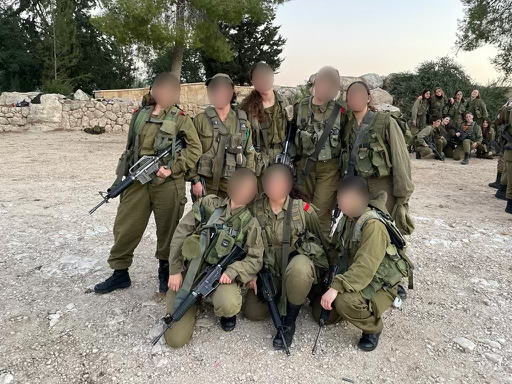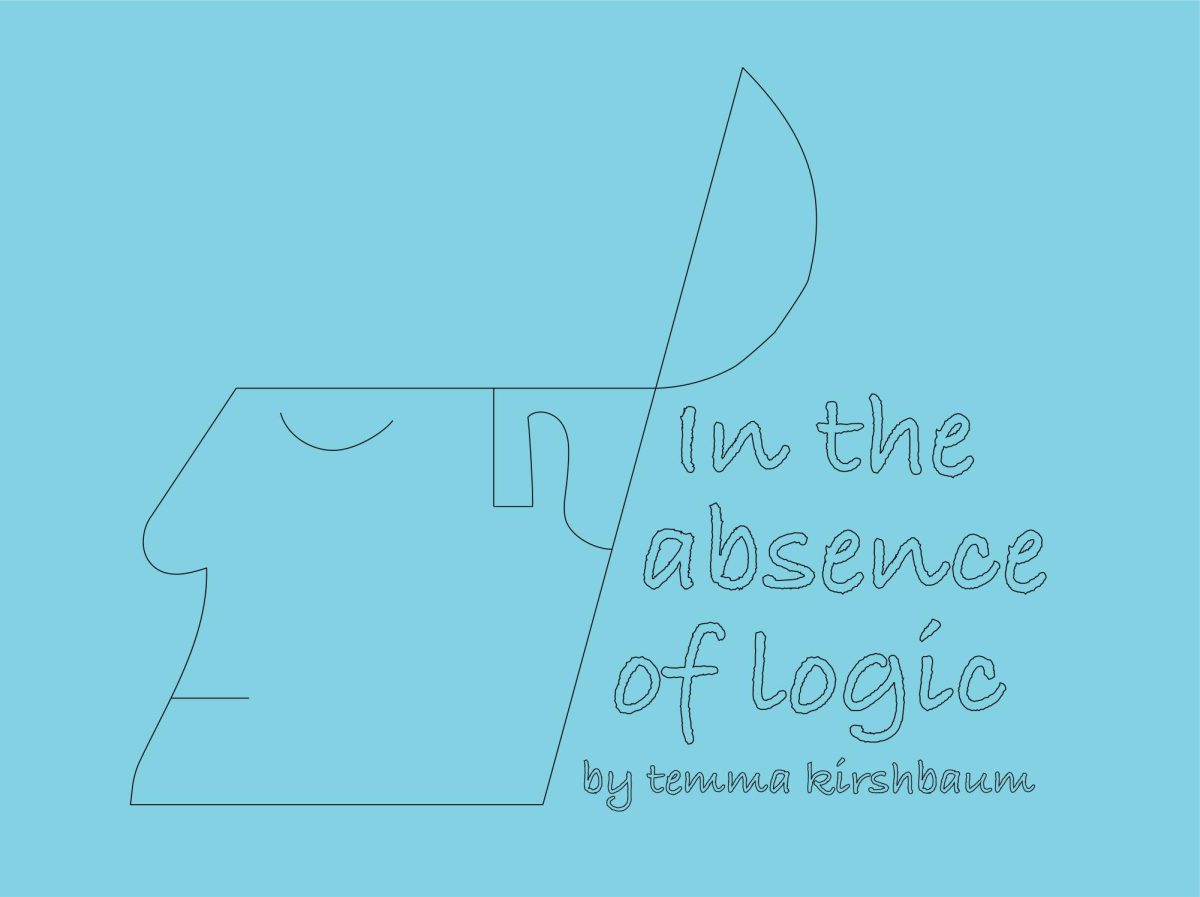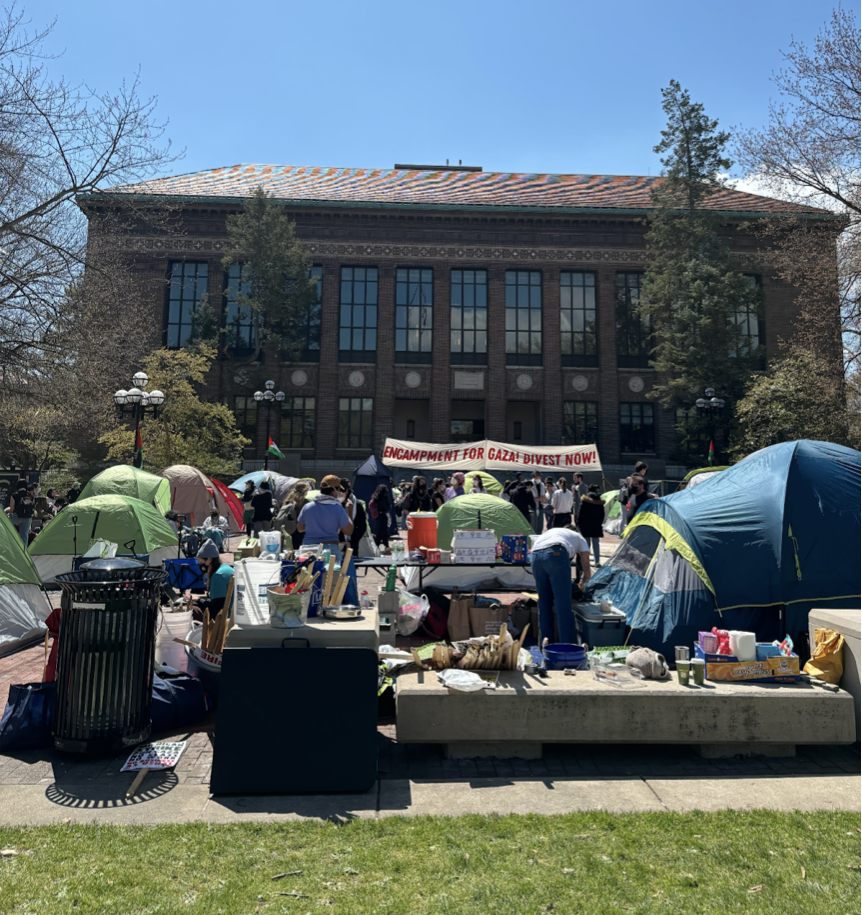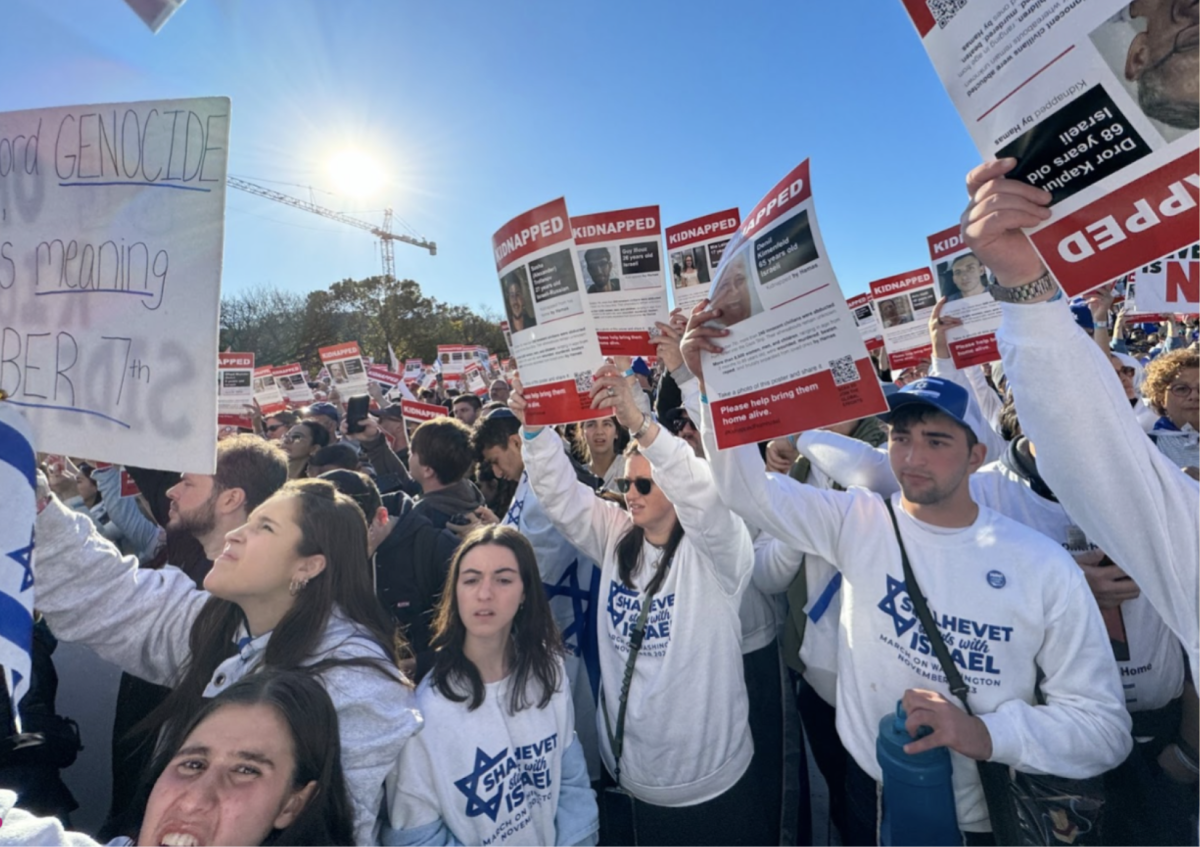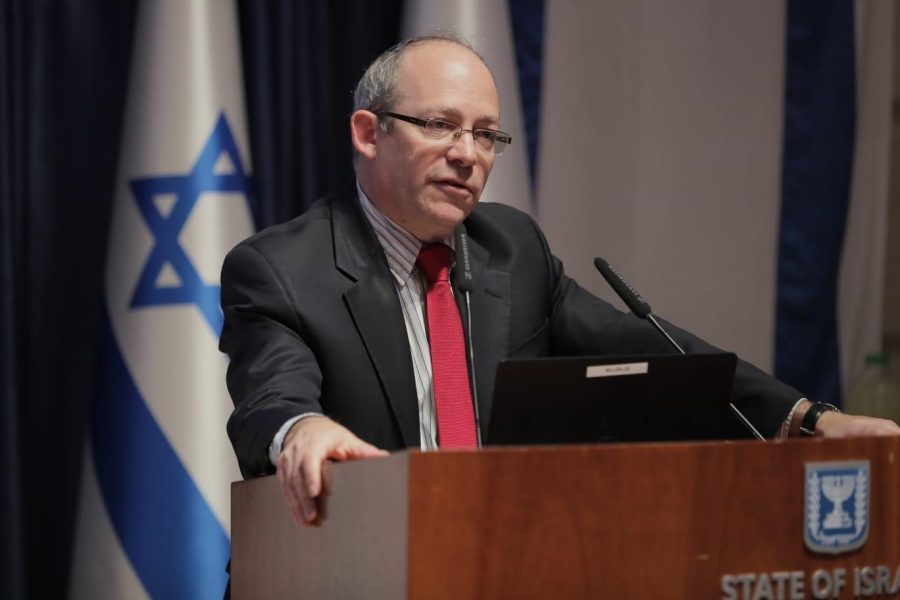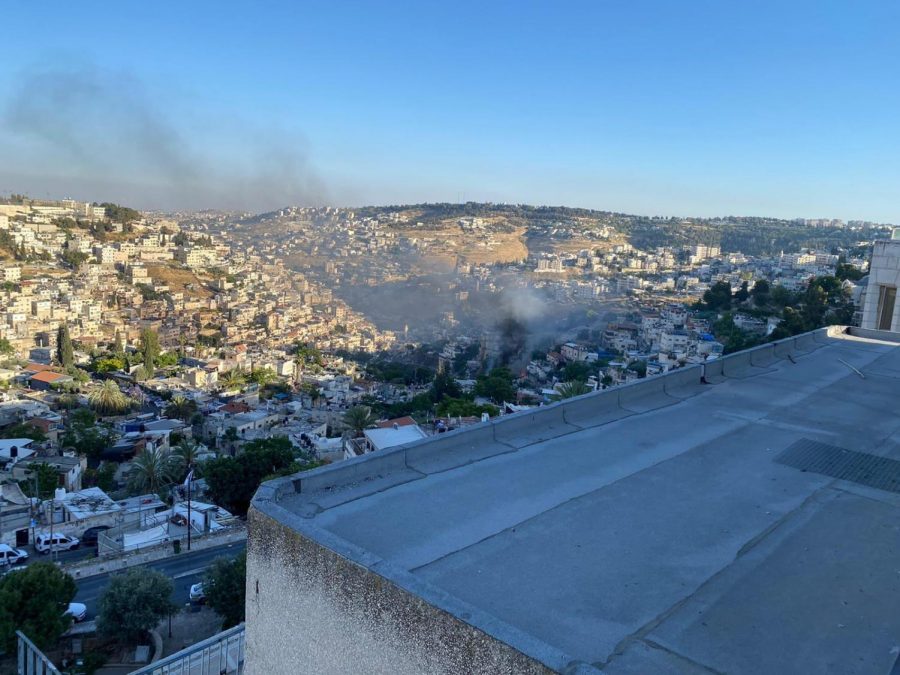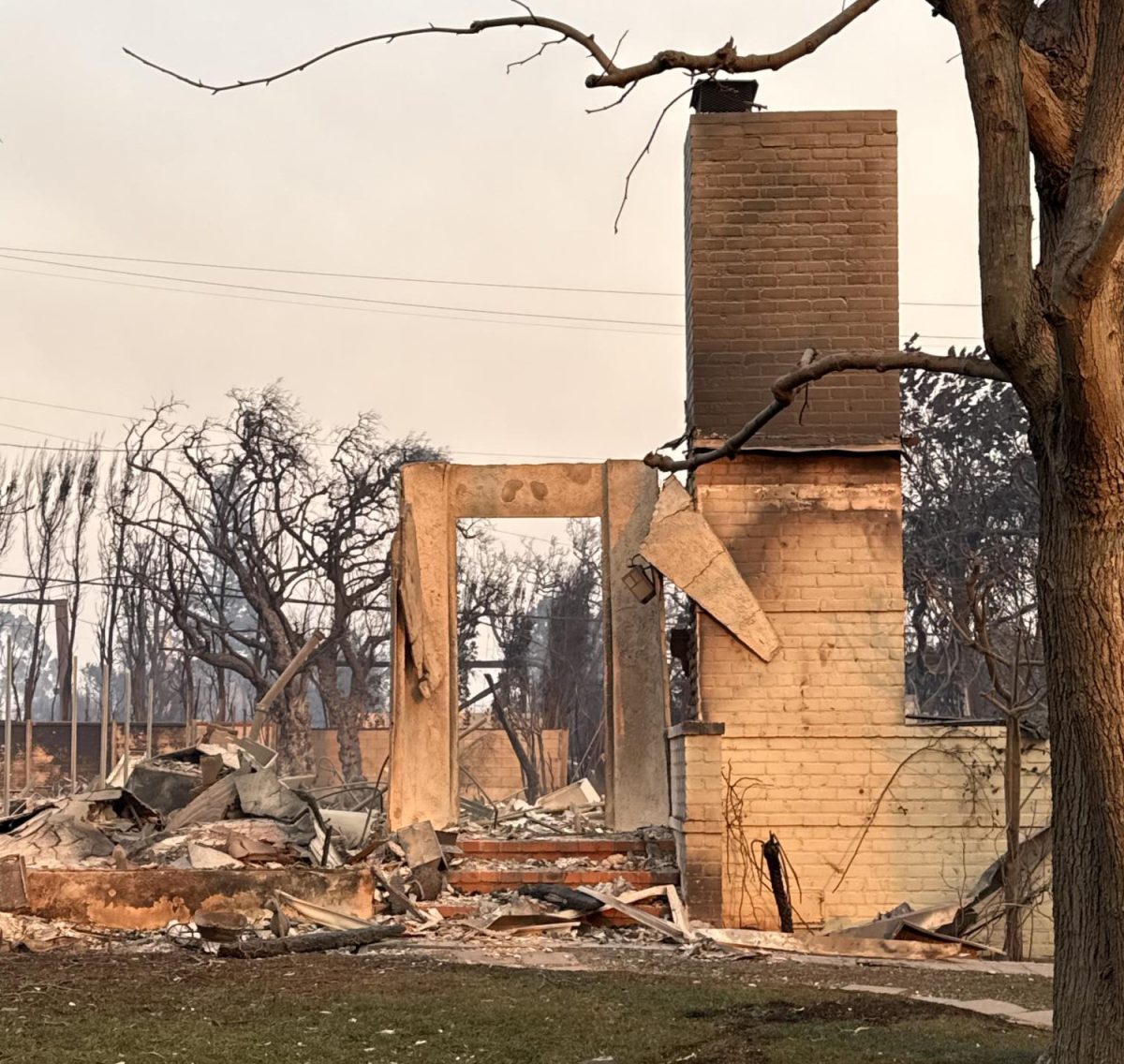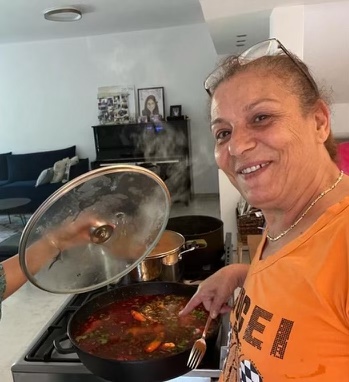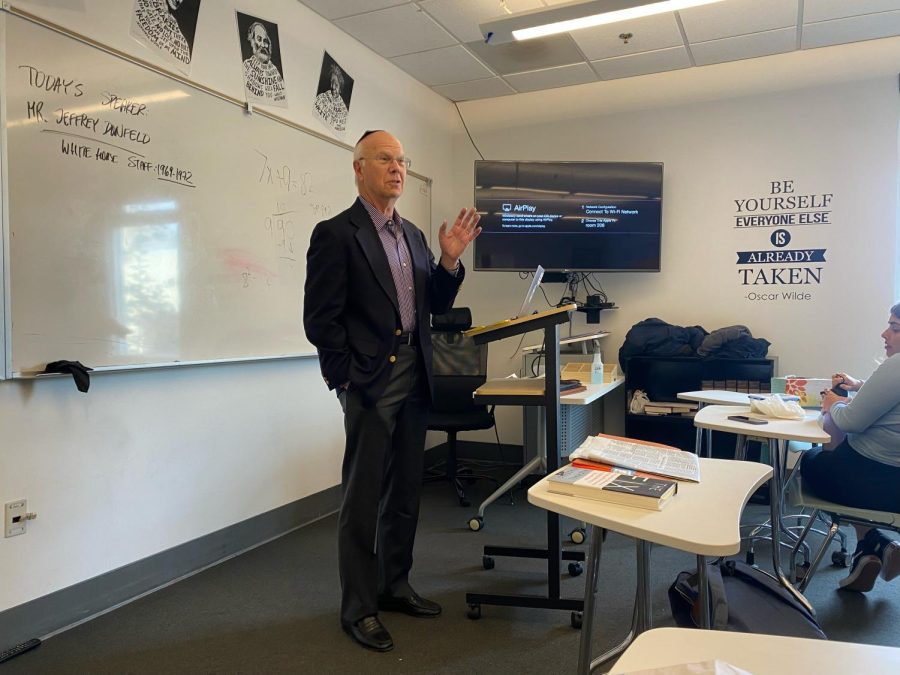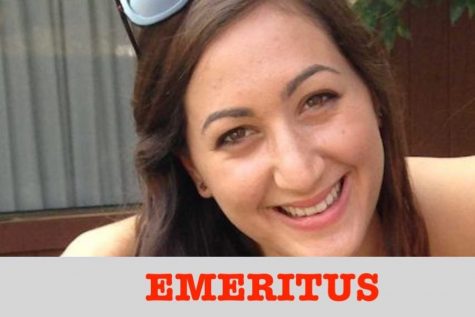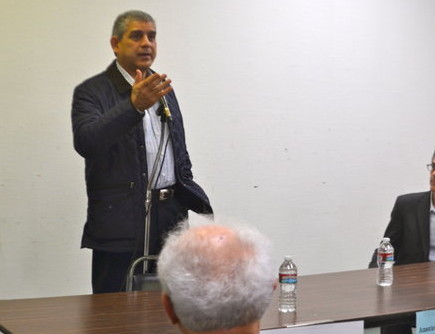
Palestinians and Israelis are like an unhappily married couple in need of a formal separation, according to the Palestinian Liberation Organization’s Chief Delegate to the United States, Maen Areikat.
Mr. Areikat, whose vision for such a separation is two separate states, spoke to a group of about 100, including some Shalhevet students and faculty, at the Westside Jewish Community Center Feb. 19. The event was organized by J-Street and Americans for Peace Now, nonprofit organizations that promote solving the Palestinian-Israeli conflict peacefully.
“Our relationship right now is like a forced marriage,” Mr. Areikat told the audience of mostly senior citizens. “We need a relationship without tension, and the only way to coexist is by separating.
‘There is no future of Israelis and Palestinians living together,” he added.
In two separate countries, people would be able to commute freely from one state to the other and would be able to reside wherever they wanted, he said, as long as they had proper documentation. If they respected the law of whichever land they’re in, he said, Arabs and Jews could live together in “peace and security.”
The PLO was formed in 1964 in support of an independent Palestine. In the mid-1970s, the group became known for numerous airplane hijackings and school massacres, and it was considered a terrorist organization by the U.S. and Israel until 1991.
Since the 1993 Oslo Accords, the PLO has recognized Israel’s right to statehood and in turn, Israel recognizes them as representing the Palestinian people. According to the PLO’s Negotiation Affairs Department, finalizing negotiations on a two-state solution is in Israel’s hands.
Mr. Areikat was born in Jericho, in the West Bank, and studied in the United States at Arizona State University and Western International University. In 2009, he was appointed chief of the PLO delegation to the United States. He currently lives in Washington DC with his wife and three children.
He strongly believes that the establishment of a Palestinian country is imminent and is working hard to ensure that the future between Palestinians and Israelis is peaceful.
“I believe my children will be around to witness a sovereign Arab state,” Mr. Areikat said. “Hopefully I’ll be around as well. A lot of the conflict has to do with emotions, so I am trying to make my kids love their homeland without making them hate Israelis and Jews.”
The February event was organized by J Street, a liberal nonprofit pro-Israel group. According to their website, they support a two-state solution and believe that “being pro-Israel doesn’t require supporting every policy of its government.” They consider themselves to be both pro-Israel and pro-Palestinian.
Other topics of discussion included Israel’s right to exist and the PLO’s relations with the US. He also touched upon Arab “right of return” and settlements in the West Bank.
When asked whether Israel has the right to exist as a Jewish state, Mr. Areikat replied that the PLO has signed a letter of mutual recognition with Israel, and deleted destruction clauses from their national charter.
“It’s clear that we recognized and continue to recognize Israel as a Jewish state,” Areikat insisted. “It’s an obstacle that the Israeli government wants us to recognize them as a Jewish state over and over again. Call it what you want, it’s none of my business.”
Regarding settlements in the West Bank, Areikat called them an “Israeli problem,” saying they were a Palestinian problem in the past but now are challenging the foundation of the state of Israel.
In Israel, he said, a “vocal minority [is] holding the majority hostage to their extreme policies.”
Junior Liat Menna did not believe that Areikat was taking a holistic view of the situation.
“I think he thinks peace is not Israel’s position so it’s kind of an impossible view,” said Liat, who is in Mr. Feld’s Modern Middle East class.
Liat thought the diplomat’s words were a contradiction of Palestinians’ actions in recent months. In November, the Palestinian Authority took a vote to the UN to switch their status from “non-member observer entity” to “non-member observer state,” despite strong opposition from both the United States and Israel.
“He is only looking at one side of the puzzle, not both sides,” Liat said. “He kept mentioning how both sides need to be sympathetic, fair, and genuine. But what about the Palestinians overstepping that by going straight to the UN [in November] without considering Israel’s position? That’s the kind of behavior that is detrimental to the peace process.”
Regardless of whether his students agreed or disagreed with the speaker, Mr. Feld was happy to have them at the event.
“Events like this are important,” Mr. Feld said. “I’m glad Shalhevet students are exposed to them, because it’s important to hear positions of decisionmakers. This was time well spent.”
Mr. Areikat ended the night with his take on what the future will hold: he believes his two-state solution is feasible and will be instituted for this coming generation.


